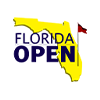Unsettled. Fluid. Ever-changing. When it comes to discussion of how the global coronavirus pandemic is affecting every walk of life, these are oft-repeated descriptions.
Golf has been a welcome escape for some during uncertain times, providing an outlet where participants can get exercise outdoors while being able to avoid close interaction with others. With more golf courses throughout the U.S. than Starbucks stores and an appeal that that spans generations, the game has shown it can offer valuable physical and mental respite with safe operation and proper protocols.
That said, the situation is changing continually, and often rapidly.
As golf facilities nationwide implement unprecedented safety measures, some are suspending operations due to government mandates, local or otherwise. This has been particularly true among municipally-owned facilities, with golf course shutdowns that extend from Boston and Atlanta to San Francisco, where all residents have been ordered to remain in their place of residence in an attempt to slow the spread of the coronavirus.
Meanwhile, the majority of golf facilities remain open and operators find themselves in uncharted territory, from extensive measures being implemented in an effort to ensure the safety of loyal customers and staffers to increased communication with those same groups to keep them informed and help allay fears.
The NGF is conducting facility-level research to determine the extent of course shutdowns and imminent closures, and the possible effect on rounds-played, while tracking the safety precautions being taken by facilities that are still operating — though it’s most definitely not business as usual.
***
Feedback thus far indicates that in growing number of instances, golf facilities that are open for play have shut down their clubhouse or food and beverage locations while drastically limiting other common touch points. In addition to the protocols that have been in place – extensive signage, staff education and frequent sanitizing efforts – some facilities are prohibiting cash transactions and the exchange of receipts, offering single-rider golf carts or requiring walking, not allowing staffers to touch or carry a guest’s bag or other belongings, and spacing out tee times more widely than usual.
On the course, operators have been encouraging flagsticks to be left in at all times and others have removed high-touch items, among them bunker rakes, water jugs, ball-washers or range-ball baskets. While some have halted all F&B services, others are offering grab-and-go fare or take-out delivered by staffers with sanitary gloves.
“The benefit that golf has is that it’s the perfect sport for social distancing. It’s relatively easy to keep your distance,” said KemperSports CEO Steve Skinner. As one of the industry’s most prolific management companies, KemperSports operates more than 120 courses, from well-known resorts such as Bandon Dunes (Oregon), Streamsong (Florida) and Sand Valley (Wisconsin) to successful municipal facilities on either coast.
“In our markets in the country where the weather is good, the golf courses have been very busy, which is really interesting,” Skinner said. “I think everyone is kind of feeling their way. And it’s an incredibly fluid situation that’s changing by the hour, with a lot of jurisdictions. But for the most part, the vast majority of our facilities are open for play and we’re taking special precautions to make sure that our guests and staff are safe and healthy.”
***
The biggest challenge for operators may be how to successfully operate in an environment perhaps best described as ‘What’s-coming-next?’ The most common responses boil down to communication and flexibility. Operators cite a need to remain calm, be nimble in their responses, listen a lot, learn a lot and then pass that information along effectively.
“First and foremost, the health and safety of our associates, members, guests and all who visit our facilities remains our highest priority,” said Kris Strauss, a senior vice president for Troon Golf, which operates more than 450 facilities worldwide as the largest golf management company in the game.
“We are obviously taking this situation very seriously, while remaining calm. As we are all experiencing, we are dealing with not only an unprecedented situation, but also a situation that is changing almost hourly. And those changes vary by state, county, and city.”
***
In major cities like San Francisco, Boston and Orlando, the fairways of a number of courses were full of golfers one day and then empty the next.
TPC Harding Park, a municipal facility in San Francisco, shut down operations exactly two months before it was scheduled to host the final round of the PGA Championship, now canceled. In all, six Bay Area counties face a mandatory shelter in place order through at least April 7, leading to temporary closures at a growing number of facilities, among them Pasatiempo and The Presidio.
In Orlando, the popular Winter Park 9-hole course, a municipal facility, has been temporarily closed, while the four Walt Disney World golf courses remain open for play even though the theme park is shut down.
Outside of Boston, operators of the municipally-owned Presidents Golf Course imposed a walking-only rule on March 13. While some players canceled their tee times in objection, their spots were all quickly filled. Two days later, the course halted operations and a number of other municipal facilities in the area followed suit to stay in step with local health orders.
“We felt the writing was on the wall,” said Presidents Golf Course Head Professional Dana Smith, who’s worked in the golf industry for more than two decades. “We’re just sitting this out. We made phone calls to our yearly subscribers, a lot of whom are seniors, just to tell them that we’re thinking of them but right now there’s no plan of action. That’s the challenging part. It’s mentally exhausting. Your outside-the-box thinking is being put to the test like never before.”
***
Other municipalities remain committed to keeping their public golf courses open to give residents of the local community an enjoyable outdoor activity that provides some exercise.
A number of municipal facilities have reported being directed by their local county officials to keep the golf course open to the public moving forward, even if restaurants or parts of the clubhouse are closed.
In Austin, Texas, all parks and recreation facilities are closed due to COVID-19 restrictions, but walking-only golfers are still permitted to play at the city’s six municipal golf courses.
The pro shop, golf cart rentals, food concessions, restrooms and other on-site amenities are all closed, while golfers choosing to play are encouraged by city officials to practice social distancing from other golfers and use hand sanitizer when coming into contact with “course features.” Golfers are also discouraged from congregating in groups larger than 10 people.
The disclaimer, of course, is that this provision may change at any time by order of the health department or an authorized city official.
***
Away from the course, golf-entertainment venues like Topgolf have been among the fastest-growing forms of engagement with the game in recent years.
But many of the selling points of those popular venues, designed to promote social interaction both day and night, result in potentially higher risks than those found at green-grass golf facilities as it pertains to the transmission of the coronavirus.
In complying with all government-issued mandates on mass gatherings, Topgolf has temporarily closed all 56 of its U.S. locations.
Approximately 100 Golf Galaxy stores nationwide temporarily shut their doors as parent company DICK’S Sporting Goods temporarily closed all its retail locations through April 2. The stores continue to serve customers through its mobile app and online, and through a new contact-less curbside pickup service.
***
Off course or on, golf is among a vast number of major businesses being greatly affected by the coronavirus pandemic, with the potential for an even more significant impact if the threat continues to escalate and governments impose added restrictions on activities deemed non-essential.
That possibility has led to some uncertainty among staff at golf facilities around the country. It’s something that operators and others in the game may not only have to be merely cognizant of, but be prepared to take an active role in helping to offset.
“I know there is some federal legislation underway and it’s really incumbent on us as an industry to make sure golf is included in the relief,” said Skinner. “In the past, when there’s been hurricane relief bills and the like, sometimes golf has been excluded. As an industry, we’ve tried to champion that over the years — just like travel, leisure, hotels and other leisure activities.”
Article Courtesy of National Golf Foundation





